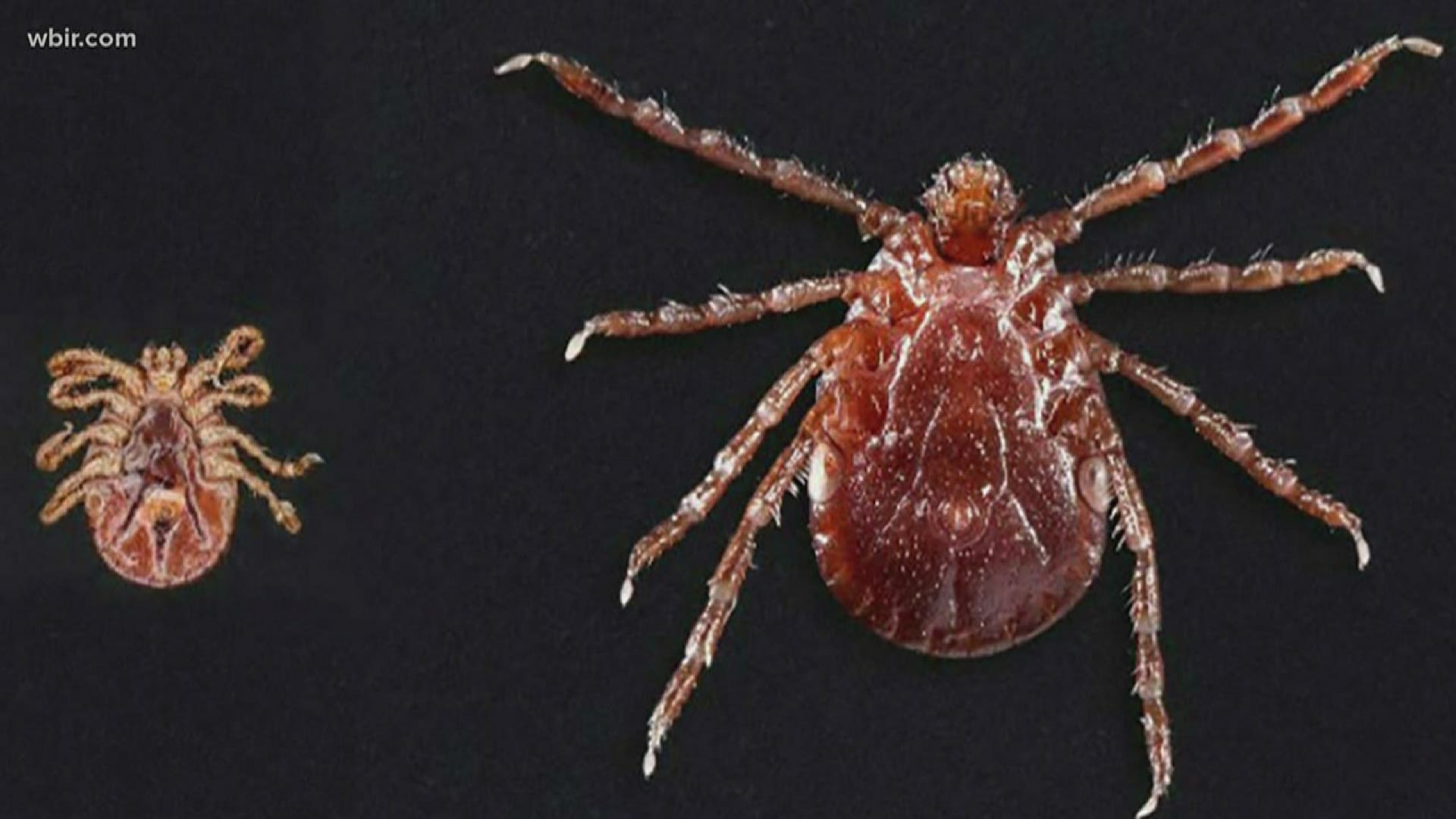Forget those so-called 'murder hornets,' because there are quite a few other bugs that are actually here in Tennessee that are far more worrisome.
One of those is the tick -- which can carry a myriad of awful diseases from Lyme Disease to alpha-gal, depending on the species.
Here in Tennessee, there are tons of ticks -- at least 15 different species from the American dog tick, Lone Star tick, blacklegged deer tick, and the recently discovered Asian longhorned tick.
The start of tick season has arrived once again, and experts such as Neal Denton with the UT Ag Extension expect this season will be worse than normal as the weather warms up.
The mild temperatures in winter mean all the bugs will be especially active this summer.
"Yeah, it's been a perfect winter for insects, arachnids, and everything, because we haven't had a lot of really cold weather, and we've had a lot of moisture," he said. "So both of those things feed into us having more creepy crawlies around, and I think ticks are no different."
Some easy ways to keep ticks off you as you spend time in the great outdoors are to wear long sleeves and pants, keep brush piles away from your home, and use bug spray with DEET.
Also, take showers within two hours of coming inside and check your body or your child's for ticks. The areas to specifically check are under the arms, in or around ears, inside belly button, back of the knees, in or around hair, between legs, and around your waist.
Read more about ticks from the CDC by clicking here.
Most of these ticks become active in the month of April as spring arrives and last through the summer into September. Unfortunately, some of these species can cause issues for people if bitten.
A bite from the Lone Star tick can cause a syndrome known as alpha-gal, which can put a serious damper on your craving for steak. Alpha-gal is a sugar molecule transmitted by the tick which creates a food allergy to red meat.
It can take hours for a reaction to red meat after a person is infected. Symptoms include hives, swelling, wheezing or shortness of breath, runny nose, abdominal pain, diarrhea, vomiting, headaches, and even anaphylaxis, which is a deadly allergic reaction.
A bite from the American dog tick can cause Rocky Mountain Spotted Fever. Like alpha-gal, it can also be deadly if not treated with antibiotics. RMSF is a bacterial disease which normally causes fever, headache, rash, vomiting, muscle pain, and lack of appetite. The good news -according to a University of Tennessee professor- is RMSF is only carried by about 3-5% of these ticks in Tennessee.
Other diseases carried by ticks in Tennessee according include Lyme Disease and Southern tick-associated rash illness.

